
The government needs to set a “clear, long-term food and agriculture policy and provide innovation funding to safeguard the future of UK farming”, Tesco has urged.
Speaking at a session at the Oxford Farming Conference yesterday, Tesco’s chief commercial officer Ashwin Prasad said farmers needed a clearer vision for sustainable agriculture, “including greater investment and policy certainty, to enable the industry to drive sustainable economic growth”.
Prasad’s comments come as Tesco announced new plans to set up two low-carbon concept farms in its supply chain to trial low-carbon farming methods and help suppliers accelerate innovation.
The retailer, in collaboration with Harper Adams University, has also undertaken research among more than 300 UK farmers on the future sustainability of the industry. It found 74% of farmers surveyed were concerned about the impact of climate change on their farms, and two-thirds (67%) were already seeing the effects.
However, some 76% had not been able to implement all the environmental measures they had wanted due to high upfront costs, the risk of poor financial returns and a lack of policy certainty from government.
Tesco is therefore calling on government to better support UK farmers through a long-term land use and food security strategy; improved funding for all stages of innovation that aids sustainability; and setting common environmental standards which farmers can regularly measure against to help prioritise investment in the most effective and sustainable farming techniques.
At the same time, it said it would continue to support the industry to implement clearer sustainability requirements and standards, “working with farmers to simplify and standardise data collection and exploring new models and incentives that could help farmers manage investment risk”.
“As the biggest customer of UK agriculture, we know providing our customers with healthy, affordable and sustainable food wouldn’t be possible without the expertise and dedication of our farmers across the country,” Prasad said.
“But to continue to thrive in the future, the industry needs more certainty and support. Many of the solutions we need exist today, but government and the food industry need to make sure we have the right incentives in place so that UK agriculture can reach its potential as a driver of both sustainability and economic growth.”
Read more: Why Steve Reed will need more than a ‘new deal’ to get farmers back onside
Tesco is working with potato supplier Branston and red meat giant ABP on its low-carbon farm trial – which will explore current and future innovations such as low-carbon fertilisers, alternative fuels, state-of-the-art cold storage, and carbon removal techniques, as well as innovation in other areas including soil health, grazing management, biodiversity assessment and management, and genetic improvements.
The comments follow a speech at the conference by environment secretary Steve Reed, who laid out his ‘New Deal for farmers’. Reed made a commitment to monitor – for the first time ever – how much food from British farmers was sourced for the public sector, alongside pledges around planning reform and protecting farmers in future trade deals.
These commitments would feed into the government’s recently announced 25-year farming roadmap – which is due to be published later this year and was described by Reed as the “blueprint that will make farming and food production sustainable and profitable for the decades to come”.
But like Tesco, many food sector groups have been calling for greater action when it comes to the transition to sustainable farming systems – despite Reed’s claims yesterday.
Soil Association policy director Brendan Costelloe said the 25-year farming roadmap (plus the government’s forthcoming food strategy) needed to be bold and aligned, “so they can drive the kind of farming we need to protect climate and nature, by creating better markets for healthy and sustainable food and putting a stop to harmful practices”.
Meanwhile, Patrick Holden, founder of the Sustainable Food Trust, said Reed’s speech (and Labour’s stance to date on sustainable farming) represented a “missed opportunity”.
“Farming has the potential to help meet several of Labour’s big goals on economic growth, nature, climate, and health. But to do this needs an ambitious, cross-governmental plan,” he urged.
“The farming community has never felt less valued and recent announcements have not helped with this,” Holden added.
“We need a seismic shift in the level of support for farming practices which deliver measurable benefits to nature, climate and human health and wellbeing, to ensure these systems are the most profitable. Support cannot simply be for activities around the edges of farmland but must include support to shift whole farming systems in a more regenerative direction.”







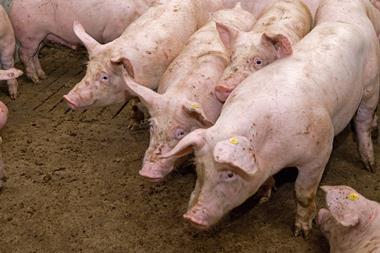

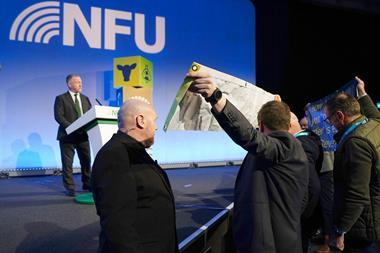
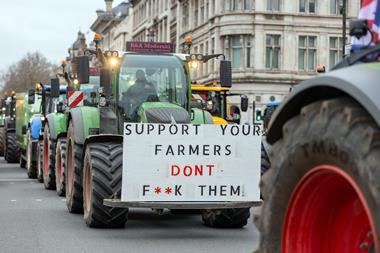

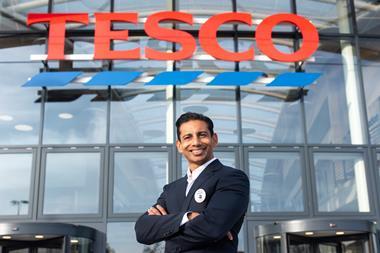
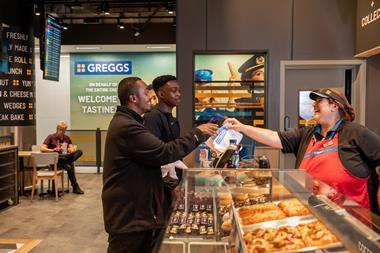





No comments yet